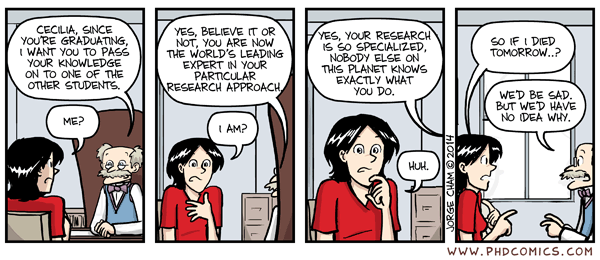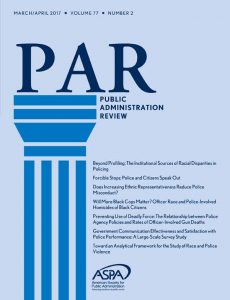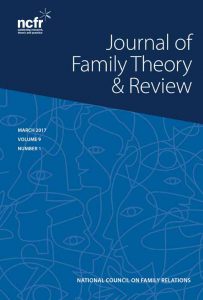Are We All Expert Impostors?

Image credit: PhD Comics www.phdcomics.com/comics/archive.php?comicid=1723
In a previous post (which can be found here), I mentioned the ‘impostor phenomenon’ and how I and many people I know who work in academia have experienced it in some form or another during their career. The ‘imposter syndrome’ (identified by Clance & Imes, 1978, pp. 1-2), the feeling that leads the self-declared impostors to believe that they are not intelligent and that anyone who thinks otherwise has simply been fooled, is usually accompanied by a fear that one day some significant person (a colleague, boss, parent, or partner) will catch them out and realize that they are a fraud. It is incredibly common among academics and is even more common among those who are not in the ‘elite’ category normally associated with academia, i.e. white, wealthy men. Thus, impostor phenomenon is particularly prevalent among women, ethnic minorities and/or any under represented populations (see e.g. Peteet, Brown, Lige & Lanaway, 2014).
As impostor phenomenon has entered mainstream discourses surrounding academic success (and failure), numerous books and articles (such as Clance, 1985, this Forbes article, or this advice for new students at MIT) attempt to offer ways to understand and deal with this newly acquired insecurity; the fear of failing because you feel like an impostor. Oftentimes, it is said that feeling like an impostor is something that we need to overcome, and that ‘faking it’ is an important part of doing so (for example, Amy Cuddy’s TED talk, 2012). This is almost certainly the case for people in academia who are undermining themselves unjustly, particularly women and first generation graduate students who tend to face significant internal barriers to success (see e.g. Gardner, 2013). I would argue, though, that in some instances (particularly in my own experience) feeling like an impostor can be a legitimate emotion, because that is exactly what we are.
I don’t think this is because all academics are claiming to be something that they are not (though some do seem believe their own hype), but rather it is a result of the perceptions, assumptions and actions of people who place academics on a pedestal. We are treated as ‘experts’ in our fields, and often as ‘experts’ in general, even if we have never claimed the title ourselves. Expertise was described by French and Raven in 1958 as one of the ‘bases of power’ (2001, p. 267), and power is always problematic when it is approached uncritically. Yet the social construct of the expert is so pervasive that if others see you as such and you contradict them, they think you are be modest or lack of confidence. That isn’t always the case. Sometimes we are forced into the position of the expert by the assumptions of others; we are made into impostors against our own will.
An example of this that I have experienced recently was when I began working with the Sapara people here in Ecuador. Few people, other than the Sapara people themselves, know very much about their life or culture. I am certainly not an expert on the subject. Yet, after spending only a few days in a small, isolated, Sapara community, I found myself in an unwarranted (and unwanted) position of power. I had been invited to accompany a community leader, the president of the Sapara women’s organization (Ashiñwaka) to a conference in Peru where representatives of the Peruvian government would discuss ‘community perspectives’ on REDD+, an international project aimed at mitigating climate change by reducing the amount of carbon emissions that are caused by deforestation (ironically, the only community member giving their perspective at the conference was the Sapara representative from Ecuador, all other speakers were members of the Peruvian government, academics or other perceived experts on the subject). However, as it turned out the designated representative was unable to attend the conference, and so I was given the task of choosing an alternative person.
I immediately felt uncomfortable with this responsibility. The organization I was working for, which was also funding the trip from Ecuador to Peru, had asked me to choose a person who I believed could represent the Sapara people and who was capable of speaking on behalf of them at the conference. The first thing I did was ask the person who was originally supposed to be going with me to suggest someone, and she recommended two people. Both were young women who were involved in Ashiñwaka, and neither of whom I had met before. I sat down with them both separately and asked them if they wanted to go and whether they felt comfortable with speaking in front of people. They seemed nervous and I felt uncomfortable with the tone of the conversation. It felt like I was interviewing them for a job.
I spoke with the NGO I was working for and voiced my concerns about making a decision as to who should go. Firstly, I wasn’t sure that either of the people that had been suggested would be entirely comfortable speaking at a conference, but more than this I felt that I shouldn’t be able to decide who is (and who is not) a legitimate representative of a community that I am not part of and that I really know very little about. Yet in the NGO industry, and in the world of climate change politics, this is quite normal. Representatives of indigenous communities (and other peoples who are directly affected by climate change policy) go through a careful selection process whereby those people whose ideology, public image, and personality fit in with the agenda of the sponsoring organization or the government are given a voice, while those who are seen as problematic or who have an alternative perspective (to the dominant discourse) are silenced by way of their absence from the mainstream debate.
In the end, I suggested that the people I was working with discuss it among themselves and decide on a person to go to the conference in Peru. At first I felt good about this. I felt like I had made the right decision by ‘allowing’ the Sapara people to choose their own representative (though the decision did not involve the whole community), but as I thought about it over the next few days, I realized I had still been in the position of power. The decision I made to not make the decision had still been my choice. I made this choice based on my own existing ideology; i.e. that indigenous people should be able to choose their representatives through a process of self-selection. Thus, by virtue of being who I am (a white British man with a couple of degrees), I was able to give an entire group of people permission to do something that they really should not need my permission to do.
In this situation, for no discernible reason, I was being treated as an expert on Sapara culture by the NGO I was working for, and even by the Sapara people themselves, neither of whom ever questioned my ability to make the decision. My arbitrary position of privilege was being reinforced by everyone around me. Even when I tried to relinquish control, it was still my choice; I still had the power. The truth is, though, that I was (and still am) an impostor. This is why the whole idea of ‘experts’ is problematic, and never more so than when people really believe that they are the expert (or conveniently forget that they are not) and think they should be the decision maker in these types of situations.
Though this is just one example, it is demonstrative of a more general tendency. I have been to a number of workshops with indigenous peoples where supposed experts (usually academics, NGO employees, or activists) lecture indigenous people on how to deal with issues ranging from childcare, to forest management, and even how to ‘preserve’ their own culture. Sometimes it is done through a thoughtful, reflective, iterative process, but at other times it is tangibly hegemonic, it verges on proselytizing, and is quite uncomfortable to watch. Regrettably, I also did this myself on my first visit to Jandiayacu (which is discussed here). I think we could all benefit from recognizing that the only things we are really experts in are our own opinions and our own very limited perspectives. As soon as we believe we are experts in anything else, or if anyone else treats us as such, we become impostors, whether we mean to or not.
I have been thinking a lot about how often people like me, those with respected degrees, those who work with NGOs or governments, or those who just happen to have some funding behind them, are able to make decisions on behalf of marginalized peoples. It happens every day, all over the world, and everyone who makes these decisions (including me) has an agenda. I wonder if my decision would have been different if I had had the opportunity to choose between two representatives, one of which had a similar perspective to mine, while the other was fundamentally opposed to me in some way. Would I have put my belief in indigenous autonomy and self-selection aside for what I perceived to be ‘the greater good’ and chosen the person who would support what I was going to say at the conference? I hope not, but in truth I don’t know. To claim that I wouldn’t use my position of power to advance my own agenda would be dishonest. After all, once you have some degree of influence, using it (for better or worse) is almost unavoidable. A concern that I have, though, is that throughout the development industry there are many organisations and individuals who seem to have become so convinced of their own expertise that they no longer question the limits of their knowledge. Of course, it is important to internalise our successes and to be confident in our own abilities, but if we fail to be self-critical and accept our positions of power too readily we are really just expert impostors.
Clance, P. R., & Imes, S. A. (1978). The imposter phenomenon in high achieving women: Dynamics and therapeutic intervention. Psychotherapy: Theory, Research & Practice, 15(3), 241.
Clance, P. R. (1985). The impostor phenomenon: Overcoming the fear that haunts your success. Atlanta: Peachtree Publishers.
French, J. R., & Raven, B. (2001). The bases of social power. Modern classics of leadership, 2, 309-326.
Gardner, S. K. (2013). The Challenges of First‐Generation Doctoral Students. New Directions for Higher Education, 2013 (163), 43-54.
MIT Admissions (2013). There are no imposters in the Class of 2018. Retrieved from the website http://mitadmissions.org/blogs/entry/there-are-no-imposters-in-the-class-of-2018
Peteet, B. J., Brown, C. M., Lige, Q. M., & Lanaway, D. A. (2014). Impostorism is Associated with Greater Psychological Distress and Lower Self-Esteem for African American Students. Current Psychology, 1-10.
Warrell, M. (2014). Afraid Of Being ‘Found Out?’ Overcome Impostor Syndrome. Retrieved from the website http://www.forbes.com/sites/margiewarrell/2014/04/03/impostor-syndrome/




1754-9469/asset/society_affiliation_image.gif?v=1&s=9197a1a6ba8c381665ecbf311eae8aca348fe8aa)

Interesting article which resonates on many levels. I’m not in a directly comparable possition of authority or perceived expertise but can relate.
I feel that the burden of guilt or fear of being exposed, as a fraud, enriches your work. By positioning yourself outside of expectations you embrace more opportunities and risk that can vastly change your results.
You can end up furthering a limited agenda, but hopefully you’ll contextualise progress and shift perspective befor this is detrimental overall.
I believe that you have to embrace every opportunity to try and potentially fail though, as the subjects will remain relatively static but your perspective needs to reflect the strains of the system and the people within.